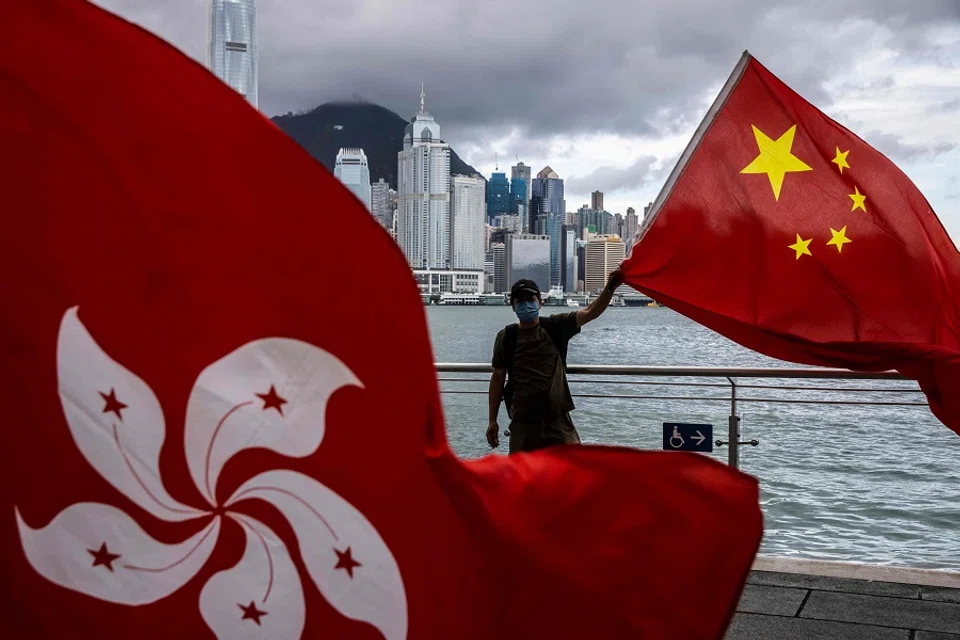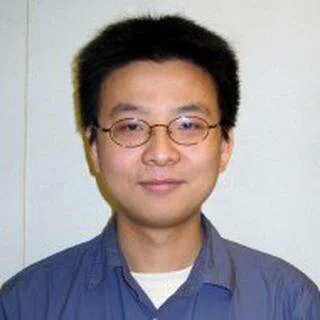One country, two systems: Can Hong Kong hold on to its characteristics?
Despite Chinese President Xi Jinping's recent speech reaffirming Hong Kong's future as well as the "one country, two systems" policy, many are worried that Hong Kong's unique advantages are weakening fast amid a tightening of political space. Zaobao journalist Tai Hing Shing tells us more.

Despite inclement weather, Chinese President Xi Jinping visited Hong Kong last week in his first trip out of the mainland in two years, signifying the importance of Hong Kong.
Xi's speech during the ceremony of the 25th anniversary of Hong Kong's handover has been widely discussed.
Affirming Hong Kong's contributions and status
Following the anti-extradition bill protests in 2019, the Chinese government implemented the Hong Kong national security law and overhauled Hong Kong's electoral system. Many Hong Kongers were uneasy with the series of new measures and Beijing's tightening grip on the city. However, Xi's speech was mild and addressed the doubts about Hong Kong's future.
For example, amid Hong Kong's crisis of confidence and concerns that the city is drifting towards "one country, one system", Xi began his speech by affirming Hong Kong's contributions to the motherland over the past century and emphasising that the "one country, two systems" policy "meets the fundamental interests of the country" and "must be adhered to over the long run".
... it is clear that the unique advantages held dear by Hong Kong are gradually fading.

This implies that the policy will not only remain unchanged, but could even be extended after 2047. This has somewhat helped to allay some worries about Hong Kong's future.
In fact, the one country, two systems policy is in itself a process of mutual integration that enables the two systems and lifestyles of mainland China and Hong Kong to coexist. But over the past few years, Hong Kong society's rapid "mainlandisation" has raised fears that the city's characteristics will gradually disappear.
Xi addressed this issue in his speech, reassuring the people by proposing four points that would be upheld, including to "maintain Hong Kong's unique status and strengths".
Thus, optimistically speaking, despite China-US tensions and Beijing's closer scrutiny of Hong Kong's security, Hong Kong's role in China's rise is still "irreplaceable" and has great potential. Undoubtedly, there is a gap between Beijing's expectations and reality. Over the past few years of turmoil, it is clear that the unique advantages held dear by Hong Kong are gradually fading.
Hong Kong's characteristics fading
Hong Kong's past achievements in governance can be attributed to its professional civil service. Unfortunately, with the change in political circumstances in recent years, people have become more aware of the downsides of its laissez-faire approach, be it in the fight against the pandemic or during the recent 25th handover anniversary.

Taking the opening ceremony of the Hong Kong Palace Museum on 3 July as an example, one of the reasons why Beijing agreed to open a branch of its famed museum was because the city, a melting pot for Chinese and Western cultures, plays a significant role in promoting traditional Chinese culture.
However, the West Kowloon Cultural District Authority, which manages the museum, had hoped to get away with minimal effort. It also carried with it political baggage, as some foreign media were denied access to the media preview of the museum with the flimsy excuse of limited space.
I visited the Hong Kong Palace Museum before its official opening for a function held by another organisation. While the museum is small, it is well curated with many worthy exhibits. However, the museum brochures are only available in traditional and simplified Chinese and English, and dispensed with a wider range of foreign languages. Obviously, the Hong Kong officials do not fully grasp Beijing's strategic intention, which is to position the museum as a way to project China's soft power.
It is not just the efficiency of the administrative branch that has slipped. It seems that Hong Kong's legislative agencies are also falling by the wayside.

Ironically, the West Kowloon Cultural District Authority had invited foreign envoys to tour the museum on 29 June, just when the latter were about to be quarantined in anticipation of their attendance at the ceremony to mark the city's return to the mainland on 1 July. They became a laughing stock in Hong Kong's diplomatic circles.
Such incidents betray Hong Kong's civil servants' ineptitude and bureaucratic inertia. In the long run, if civil servants continue to slack, the governance of Hong Kong will suffer.
Worrying shift to the left
It is not just the efficiency of the administrative branch that has slipped. It seems that Hong Kong's legislative agencies are also falling by the wayside.
After Beijing reordered Hong Kong's electoral system following the anti-extradition bill protests in 2019, the democratic activists have all but disappeared from the Legislative Council (LegCo). At the same time, the spotlight is being turned to the pro-establishment camp. But despite the promise, a more conducive political ecosystem has yet to emerge.
The most worrying trend is the increasing shift towards the left in Hong Kong.
Over the past six months, LegCo members have had no suggestions on ways to work with the Hong Kong government to resolve deep-seated problems such as housing and healthcare. Some LegCo members see legislative work as a side job and are often absent, while others have raised eyebrows by their unsubtle praises of entrenched interests.

The rule of law and a corruption-free environment has been Hong Kong's core advantage and selling point. However, Beijing has left the affairs of governance to the pro-establishment elite without a system of checks and balances, with the opposition and the media being marginalised.
The most worrying trend is the increasing shift towards the left in Hong Kong. For instance, several media outlets were not invited to 1 July interviews, while Hong Kong singer Jacky Cheung was berated by Hong Kong's "deep Blue" camp for using the expression "Hong Kong, add oil" (香港加油) - a common phrase of encouragement and support. All this reflects a shift towards extreme conservatism, which is detrimental for Hong Kong.
No doubt, it has been a tough road for Hong Kong over the past 25 years. Many Hong Kongers generally ignore the "one country" and focus on the "two systems", contributing to the street unrest and Beijing's corrective actions over the past two years.
Looking ahead, there is no question that Hong Kong's "two systems" will be built on the premise of "one country". And maintaining Hong Kong's advantage of "two systems" under "one country" will be a test of the authorities' wisdom.
Related: 'New Hong Kongers' entering politics must act in the interests of all Hong Kongers | 25 years after the handover: The 'end for Hong Kong' or just the beginning? | Have Hong Kong migrants in the UK never left Hong Kong? | Can John Lee be that all-round leader that Hong Kong needs? | Overhaul of Hong Kong's electoral system: Is it still 'one country, two systems'? | Is Hong Kong becoming just another Chinese city?



![[Photos] Fact versus fiction: The portrayal of WWII anti-Japanese martyrs in Taiwan](https://cassette.sphdigital.com.sg/image/thinkchina/3494f8bd481870f7c65b881fd21a3fd733f573f23232376e39c532a2c7593cbc)

